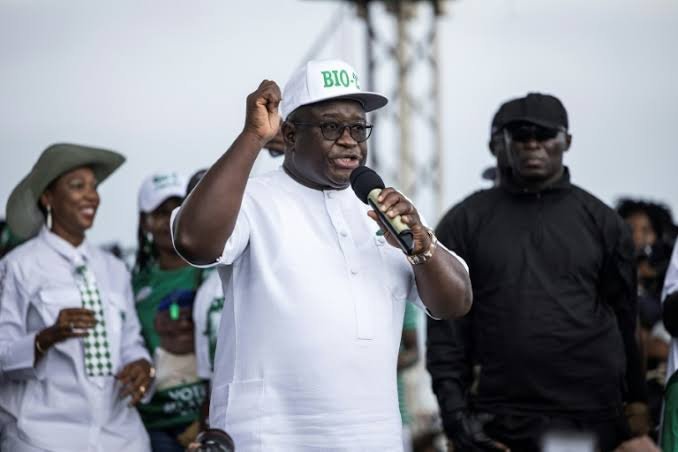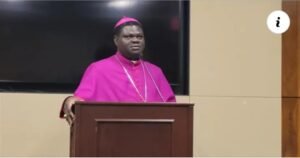Sierra Leone’s ex-soldier turned progressive champion seeks second term as president

Julius Maada Bio, the former putschist who transformed into a progressive leader, is vying for a second term as president of Sierra Leone. With his sights set on re-election, Bio has worked diligently to redefine his image as a devoted family man and advocate for education and women’s rights.
“Bio is keenly aware of how his presidency is perceived, especially on the international stage, and his media team has been actively shaping a narrative that highlights his accomplishments while downplaying his shortcomings,” said independent analyst Jamie Hitchen.
Supporters applaud Bio’s track record, citing his implementation of some of the most forward-thinking policies in the region during his five-year tenure. Among his achievements were the abolition of the death penalty and a criminal libel law, the promotion of women’s representation in both public and private sectors, and the reduction of school fees to improve access to education. These initiatives were all recommendations made by Sierra Leone’s Truth and Reconciliation Commission following the civil war.
In the capital city of Freetown, billboards showcasing Bio’s face advertise free sanitary pads for students, and he has implemented measures to ensure vulnerable children, including pregnant girls, can continue their education. Nearly a quarter of the national budget is allocated to improving access to education.
In a recent interview with AFP, Bio expressed his intention to prioritize agriculture in his second term, aiming to reduce reliance on imported food staples like rice as Sierra Leone faces a cost-of-living crisis. “Our goal is not only to increase the production of staple crops but also to use agriculture as a catalyst for economic growth across the country,” he explained.
However, critics argue that civil liberties have diminished under Bio’s leadership. Sierra Leone’s score on the annual index by the US-based democracy advocacy group Freedom House has dropped, and Reporters Without Borders’ World Press Freedom Index for 2023 shows a significant decline in the country’s ranking.
Following deadly riots last August, Amnesty International reported allegations of excessive use of force and condemned internet restrictions imposed during the unrest.
Bio’s primary challenger, Samura Kamara, is currently on trial for corruption, a case that resurfaced shortly after his nomination as the opposition’s presidential candidate.
– Seizing Power through Force –
Bio hails from the south, a stronghold of the Sierra Leone People’s Party (SLPP) that he now leads. At the age of four, his father, a local chief, passed away, leaving him in the care of his illiterate mother, whom he credits for instilling in him a deep respect for women and a strong belief in the value of education.
In 1992, Bio participated in a coup led by Valentine Strasser, who became the world’s youngest head of state at the age of 25. Bio served as chief of the defense staff and Strasser’s deputy before overthrowing him in 1996 and assuming leadership for a brief period.
Three months later, Bio voluntarily stepped down, allowing for the election of a civilian leader. Since then, he has expressed remorse for his involvement in the military junta. “He was among a group of military individuals who resorted to force to seize power,” stated Information Minister Mohamed Rahman Swaray.
“While others sought to retain power, Bio wanted to leave… He firmly believed that Sierra Leone’s interests were greater than personal ambitions,” Swaray added.
Following his retirement from the military, Bio pursued further education in the United States. Swaray described Bio as a loyal individual and listed a long roster of cabinet ministers and aides who have known him since his time abroad or even since their school days.







